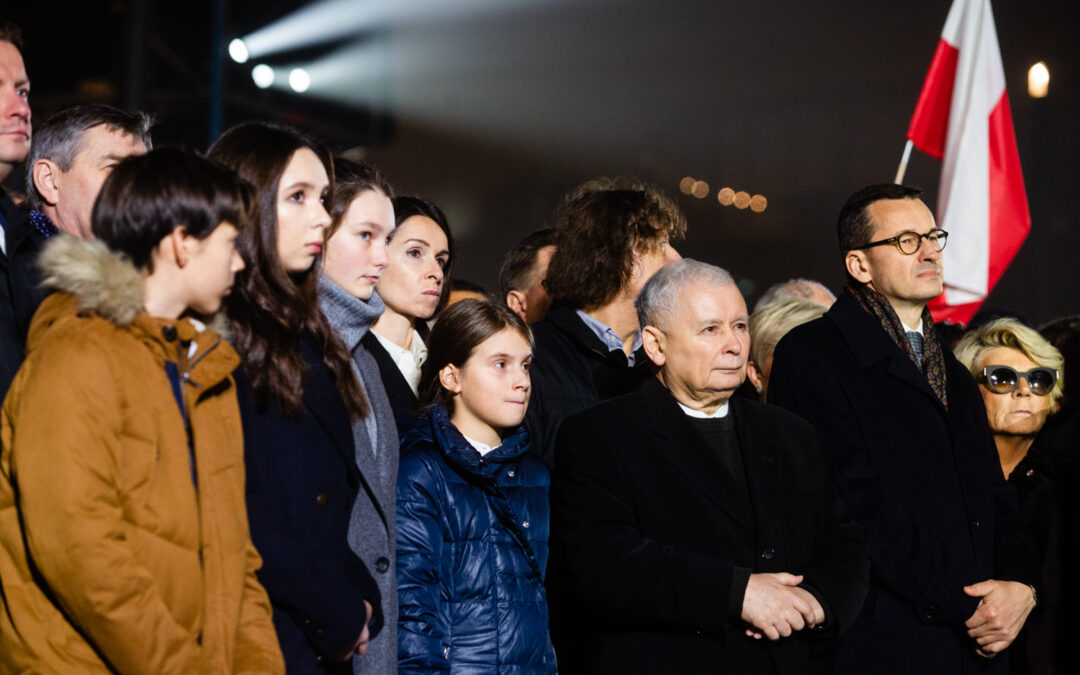Jarosław Kaczyński has admitted that the Smolensk plane crash which killed his twin brother, President Lech Kaczyński, may never be explained. His remarks, ahead of the 11th anniversary of the tragedy, stand in contrast to regular promises that his government will finally reveal the “truth” behind the disaster.
The crash on 10 April 2010 – which killed 96 people, including many senior political and military figures on their way to attend a commemoration in Russia of the 1940 Katyn massacre – quickly become the subject of bitter dispute in Poland.
Jarosław Kaczyński and the Law and Justice (PiS) party that he leads – which was then in opposition – accused the government of the time – led by the Civic Platform (PO) party – of failing to properly investigate the incident, and even of colluding with Russia to cover up the real causes.
After coming to power in 2015, PiS launched new state investigations that it promised would show what really happened. Senior figures have regularly suggested that the crash may not have been an accident, as previous Polish and Russian official investigations found.
Yet, six years later, none of these efforts have resulted in any conclusive new evidence. The head of the main investigative committee, former defence minister Antoni Macierewicz, said over a year ago that its report is ready and will contain significant new findings. Yet its publication has been repeatedly delayed.
In speeches at monthly Smolensk commemorations, Kaczyński frequently claimed that progress was being made towards uncovering the truth. “We are closer and closer, really close now. I am certain that on 10 April next year we will know the truth,” he said in November 2017, quoted by Gazeta Wyborcza.
Last week, Kaczyński announced that Macierewicz’s report “is only waiting for a signature” before being published and helping “reveal the truth”. However, in new quotes published today from an interview with Gazeta Polska, Kaczyński struck a less optimistic tone.
“I am not sure,” said the PiS chairman when asked if it will be possible to explain the causes of the crash. “It is an extremely painful issue for me. But I take the line that if, as a state, we are are to say what the real course of events was, we must be absolutely sure about every element.”
Kaczyński also noted that there are differences among those involved in the investigation, with some, such as Macierewicz, believing that the report is ready but others saying that further analysis is needed. There have recently been a number of stories indicating serious divisions within the Smolensk committee.
“I would like us to reach a point at which all such doubts will not arise,” Kaczyński told Gazeta Polska, “a situation where it will not be possible to challenge these findings rationally and in good faith.”
Polls in recent years have shown that only a minority – albeit a substantial one – of Poles believe that the disaster was anything other than an accident. Just over a quarter (26%) think it was a deliberate attack, according to an Ipsos poll conducted last year for OKO.press, while 59% said it was an accident.
In 2019, Tomasz Arabski – chief of staff to Donald Tusk, who was the prime minister at the time of the crash – was found guilty of negligence for his role in organising the presidential flight to Smolensk. He received a ten-month suspended sentence, though an appeal is still pending.
As part of its renewed investigations into the crash, the PiS government has sanctioned the exhumation of some victims’ remain. This has taken place against the wishes of some victims’ families, though with the support of others.
The exhumations were ordered after PiS returned to power as part of new investigations into the causes of the crash. They went ahead despite protests from some families, but have not produced any significant new evidence about the crash https://t.co/qzCJnY0O5d
— Notes from Poland 🇵🇱 (@notesfrompoland) January 5, 2019
Main image credit: Adam Guz / KPRM (under public domain)

Daniel Tilles is editor-in-chief of Notes from Poland. He has written on Polish affairs for a wide range of publications, including Foreign Policy, POLITICO Europe, EUobserver and Dziennik Gazeta Prawna.




















